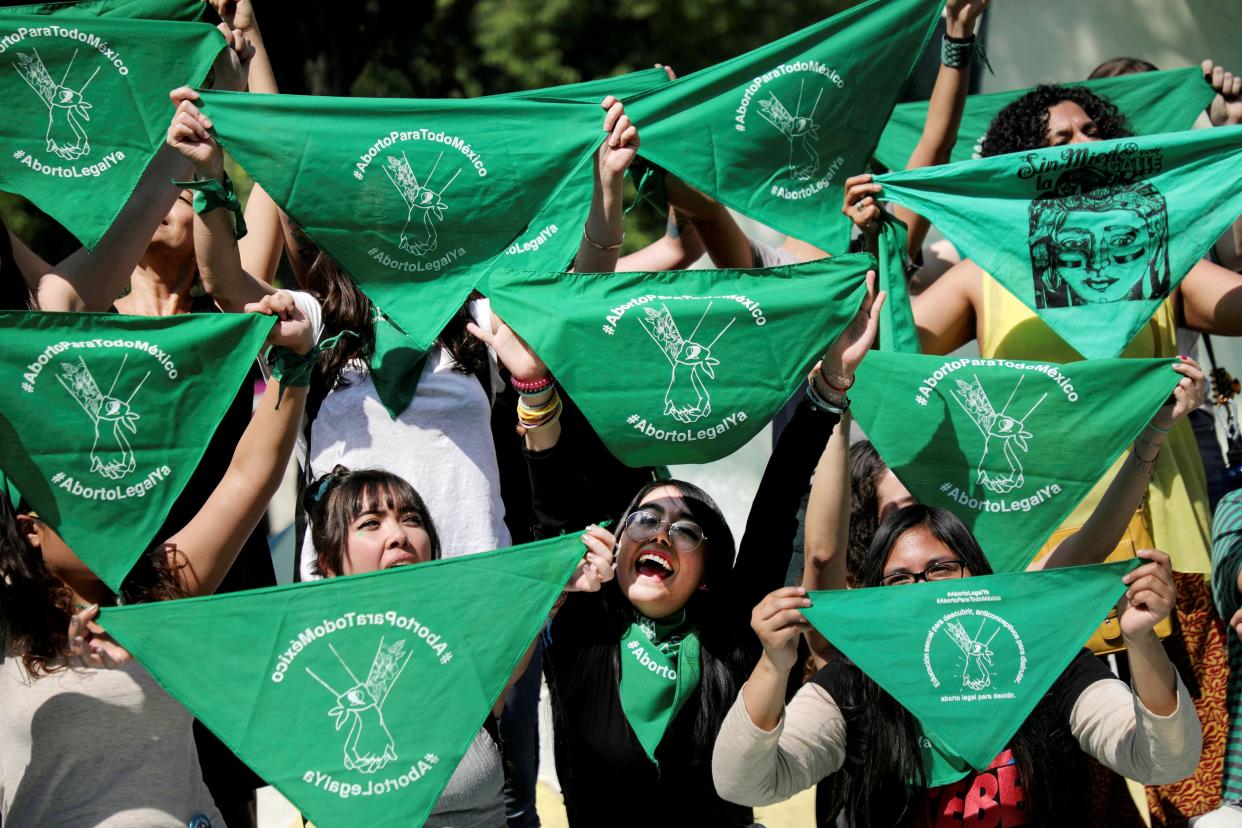Mexico decriminalises abortion in unanimous vote by supreme court

Mexico’s Supreme Court has unanimously ruled that it is unconstitutional to punish abortion, annulling rules in the northern state of Coahulia that had made terminating a pregnancy a criminal act.
Although the decision will initially only affect Coahulia, a state on the Texas border, the landmark decision holds implications for the whole of Mexico.
The ruling establishes “obligatory criteria for all of the country’s judges”, court president Arturo Zaldivar said, meaning that they will be compelled to act the same way in similar cases.
It is, moreover, the first time a supreme court in the country has debated whether or not abortion should be considered a crime, according to reproductive rights activist Rebecca Ramos.
Previously, justices have ruled in favour of women who had been imprisoned or had their rights violated for abortions, but this fundamental question had until now gone unanswered, she said.
Although the new ruling means that abortion should not be considered a criminal act in Mexico, it is still heavily restricted. In only four states — Mexico City, Oaxaca, Veracruz and Hidalgo — are abortions usually allowed.
In the other 28, abortions are illegal outside of particular circumstances. In all states, they are allowed if the pregnancy is the result of rape or if it threatens the bearer’s life and in some exceptions are made over economic factors and foetal defects.
Across most of Latin America, the Catholic Church has held sway over the abortion debate for centuries, including in Mexico — a country in which around four in five people are Catholic. Already, protests have been staged outside the Supreme Court in the wake of their ruling.
But a survey early this year suggested that almost half of the population support a person’s right to an abortion, in a dramatic increase from previous polls.
Mexico’s President Andres Manuel Lopez Obrador has, meanwhile, declined to disclose his personal position on abortion, saying that it’s “a decision for women”.
After Argentina’s Senate voted to legalise abortion in 2020, Mr Lopez Obrador said that “matters of this nature” could be decided by referenda but “should not be decided from above”.
The decision comes as, across the border to the north, Texas has passed a law effectively making abortion illegal after six weeks, a time at which many women do not know they are pregnant.
Read More
UN human rights experts call Texas abortion law discrimination ‘at its worst’
Businesses can stay quiet on Texas’ abortion law – but customers will have their revenge
Texas anti-abortion group’s website to report providers goes dark for a second time

